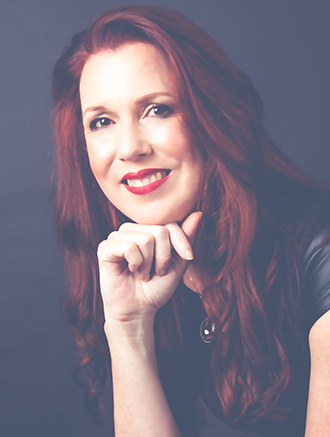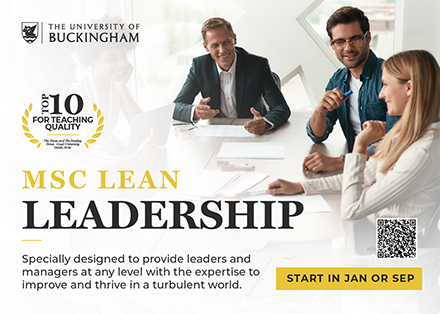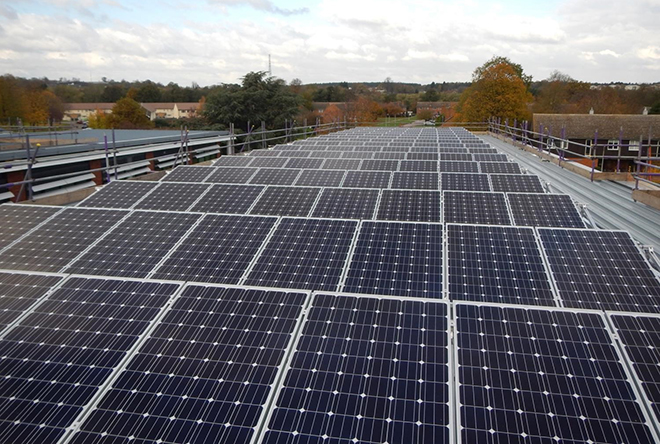There is much that business can do towards tackling climate change, says Rose Heathcote, a senior lecturer at the University of Buckingham.
Sponsored Article
We have until 2030 to drastically cut emissions. Leading large-scale change is no walk in the park and there is much to do if we are to turn the net zero goal into reality.
Setting limits on carbon spend is a start but the supply chain must be transformed to deliver on the challenge and employees be developed to help.
Change will not happen on its own and employees need support to tackle problems such as greenhouse gas emissions. Improvement towards net zero will come from various angles including innovative leaps, breakthrough improvements and day-to-day learning and improving. Each drawing on effective problem solving skills.
It is up to leaders to take the challenge, dice it into digestible bites, and support employees as they solve problems that matter.

Rose Heathcote
Solving problems that matter means measuring what matters. Narrowly focusing on profit alone will not take us far in the challenge. The most significant contributor to global warming is carbon dioxide emissions, with smaller roles played by other gases. 73% of greenhouse gas emissions stem from energy emissions, much of which arise from transport, agriculture and industry.
How well do you understand current emissions across the supply chain? What will you target?
There are options. First, target demand. Reducing consumption may be bad for revenue, but the cost of doing nothing is high. What can you do to encourage responsible consumption? Second, target product and service designs. This is proactive. Influence the sustainable design of your offering and subsequent processes to deliver to customers.
Thirdly, reactively optimise the supply chain, shifting from a take-make-waste model to a circular model. Map out the supply chain and target green waste. Fourth, leverage technology for sustainable performance. Finally, encourage cycles of learning to improve on the base continuously. To achieve this, employees will need to be mobilised and equipped with critical skills.
Large-scale change requires all hands on deck. We cannot realise grand strategies by sending the wood and nails downstream, hoping expectations will be met. We have to develop and take our people with us. This requires a commitment to learning, equipping employees to make better decisions based on sound judgments.
Students taking part in our MSc in Lean Leadership learn to lead and execute change, growing confidence to tackle issues of our time.

Organisations can do well by doing good
The UN climate panel released its assessment and the Intergovernmental Panel on Climate Change scientists sketch a less than cheerful picture. The message is clear: “It is unequivocal that human influence has warmed the atmosphere, ocean and land.”
Temperatures and sea levels will continue to rise, extreme weather will intensify, and we are quickly reaching a point of no return. Some tipping points are already crossed. There is not much time to do something about it. However, we can move the needle on climate change if we see our role in the transformation and get cracking on it.
Sitting among industry leaders a few weeks ago we were tasked to list ways we could make a difference to climate change. Good suggestions came up as you’d expect. But it did not take long for the conversation to turn to “unless policymakers do something about it, there’s not much we can do”.
With that the table went silent and ideas dried up.
Yes, policymakers play a significant role. But everyone must still do their part. And this requires a collective shift in responsibility, behaviours and action towards a clear goal.
There is sufficient evidence to support the business case for sustainability. It manifests in top-line growth, bottom-line improvement and people asset attraction and retention. Forward-thinking companies employ ethical supplier contracts, and eco-conscious customers insist on sustainable performance.
It is only a matter of time before slow-to-change companies lose revenue over it. Wasting resources, energy and capacity costs money. Consuming unnecessary materials and tolerating poor yields costs money. Paying fines and penalties strains cash flow.
Talent – especially the up-and-coming generation – choose to work for ethical companies. Turning social problems into economic opportunities means the organisation can do well by doing good.
A learner, writer and teacher, Rose Heathcote is personally dedicated to developing the capacity in people to solve problems that matter. Head of Lean, University of Buckingham.


